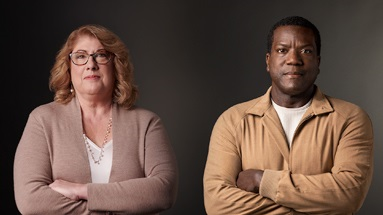Clinical trials in multiple myeloma: What is there to know?
Clinical trials in multiple myeloma: What is there to know?

Clinical trials are studies that look at potential new medicines, combinations of medicines, or new ways to use current medicines, for the treatment of people affected by diseases such as cancer. There are different types of clinical trials, and all trials are designed to ask and answer specific questions.
Some useful definitions are provided below:
- Immunotherapies: Treatments that use the immune system to recognize and kill cancer cells
- Informed consent: Where a patient, and/or caregiver, agrees to take part in a clinical trial, with knowledge of the expectations and the potential benefits and risks involved
- Placebo: An inactive substance or intervention that looks the same as, and is given the same way as, the active drug or treatment being tested
- Sponsor: The company or organization that is responsible for conducting a clinical trial
- Things to consider before taking part in a clinical trial
Please visit the page here for more information about the clinical trial process, including the different clinical steps or ‘phases’ involved.
Your healthcare team may discuss your taking part in a clinical trial with you. Like all treatment options, investigational treatments for multiple myeloma that are given to participants in clinical trials have their own potential benefits and risks, and it’s important to understand what these might be so that you can make an informed decision about your participation. Some examples of benefits and risks can be found below.
Benefits
- Potential access to an effective current treatment or an investigational treatment for multiple myeloma that might not be available outside of the trial
- Frequent follow-up by a specialist team during the trial. This team usually includes a principal investigator who directs all aspects of a clinical trial, a research nurse and data manager who manage the collection of data (information) throughout the trial, and staff doctors and nurses who help take care of the participants during the trial
- Taking part in a multiple myeloma clinical trial helps doctors and the research team learn more about the disease to improve future healthcare for people with multiple myeloma
Risks
- The investigational treatment in the clinical trial might not be better than, or may be worse than, the currently available treatments for multiple myeloma
- The investigational treatment may have unexpected and serious side effects
- Taking part in a clinical trial could require more visits to the doctor, and sometimes the visits are at a specialized center. This may mean that there are greater costs to you, such as travel or childcare expenses
- The trial may require more tests such as blood tests or imaging than current treatments. These tests are important to assess how the investigational treatments work in people with multiple myeloma
- Depending on the design of the trial, the participant may receive a current treatment for multiple myeloma or a placebo, instead of the investigational treatment. In a trial known as a “double-blind” trial, neither the researchers nor the participants know who has been given the drug that is under investigation and who has not received it
- What are the costs involved with a clinical trial?
There are two main types of costs: research costs and patient care costs, that might be involved with a clinical trial.
Research costs
These are costs related to taking part in the multiple myeloma trial. The trial sponsor may cover the cost of the treatment(s) and any tests performed as part of the trial. Sponsors can be individuals, institutions, companies, or organizations that do not conduct the trials themselves but are responsible for starting, managing, or financing them.
Patient care costs
These are also costs related to the extra care that patients need when taking part in a trial, such as more doctor’s visits, more hospital stays, and more tests. These can also lead to extra costs for things like travel, housing, food, and childcare. Patient care costs are often covered by health insurance. Before you enroll, the clinical trial team can help you identify any costs that are not covered by your health insurance or the study sponsor.
- Participating in a clinical trial
Before a person with multiple myeloma can join a specific clinical trial, they must meet certain requirements. These requirements are known as inclusion and exclusion criteria. Visit the page here to find out more about these criteria, and the process of informed consent. If you are interested in taking part in a clinical trial, then speak to your healthcare team.
Taking part in a clinical trial is voluntary. If a person with multiple myeloma is considering taking part in a trial, they will be provided with all the information they need about the trial (including the potential benefits and risks) and will also be given the opportunity to ask questions. After this, if they do decide to take part in the trial, they will be asked to sign an informed consent form.
It is important to know that once enrolled in a clinical trial, participants have the right to leave the trial at any time and for any reason. All participants are informed of this right before they enroll. Your clinical trial team will be able to give guidance on what happens should you decide to leave the trial at any point, including any safety check-ups that would still need to take place. Your personal and health-related information collected during the trial is required to be kept private, and will not be shared with anyone who is not working on the clinical trial without your permission.
- Ongoing clinical trials in multiple myeloma
There are several new treatments for multiple myeloma currently being investigated in clinical trials.
If you want advice on finding clinical trials, or are looking for clinical trials in people with multiple myeloma, please visit the following sites:












